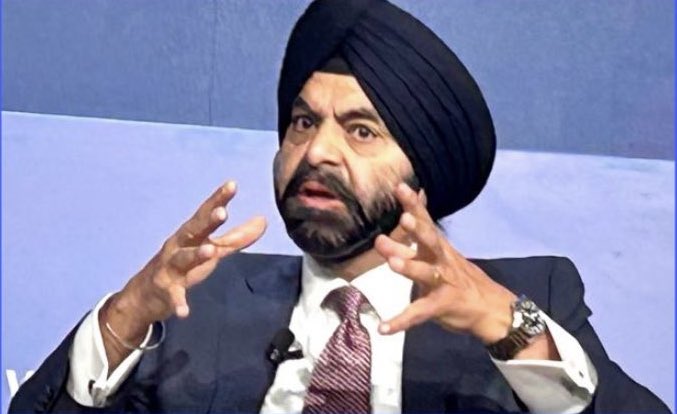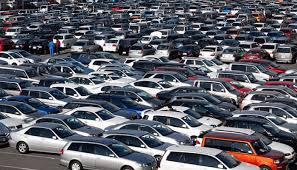
NNPCL not transparent on subsidy, dollar revenues – W’Bank
The World Bank has revealed that the Nigeria National Petroleum Corporation Limited lacks transparency regarding the financial benefits resulting from the removal of fuel subsidies.
The bank pointed out that this includes ongoing deductions for subsidy arrears as well as the effect of eliminating subsidies on federation revenues. In its Nigeria Development Update, December 2023 edition titled "Turning The Corner (from reforms and renewed hope, to results)," the Washington-based organisation made this call.
Wale Edun, the Coordinating Minister of Economy and Minister of Finance, stated that the government was prepared to examine the NNPCL's revenue flow.
The World Bank claims that although there are obvious revenue gains from the exchange rate reforms, further information is required regarding oil revenues, including the fiscal advantages of the PMS subsidy reforms.
It stated, "Since June, there have been gains in nominal oil revenue, which are primarily classified as "exchange rate gains," implying that the depreciation of the naira is the cause.
"There is, however, a lack of transparency regarding oil revenues, particularly the financial gains of the Nigeria National Petroleum Corporation from the removal of subsidies, the subsidy arrears that are still being deducted, and the impact of this on Federation revenues, with the exception of the exchange rate-related increases. Additionally, it is unclear why, despite changes in the exchange rate and the price of oil globally, retail petrol prices have not changed significantly since August.
The Bretton Woods institution went on to say that the federation's gains in net oil revenue were less than what they should have been in light of the removal of fuel subsidy should have added to the accounts.
It said that the federation lost roughly N380 billion in fuel subsidies each month, and that the federation account ought to have shown a rise in net oil revenues after the subsidies were eliminated.
Nonetheless, the majority of the increases in oil revenues in H2 2023—as reported by OAGF—can be linked to gains in exchange rates, the statement stated. Gains in exchange rates would have prevented a 0.2 percentage point decline in net oil revenue from January to August, which would have been realised in the July–August quarter of the GDP.
"The interim yearly dividend and additional revenue from Production Sharing Contracts' 40% profit were recorded in the accounts in August. These were not, however, as large as the gains that would have resulted from eliminating the petrol subsidy. The risk that the implicit fuel subsidy has reemerged and kept net oil revenues lower than anticipated is that petrol pump prices have not changed in line with market fundamentals (particularly changes in exchange rates and global oil prices).
The organisation added that the fuel subsidy reform should assist the NNPCL in paying off its debt and beginning to cover the Federation's portion of joint venture operations' expenses, allowing oil production to progressively rise over time.
The Coordinating Minister of the Economy, Edun, also spoke during the report's presentation and mentioned that the government's finances were spared when the fuel subsidy was eliminated.
He said that although the government was expecting the removal of subsidies to increase revenue, it was actually facing a large fiscal deficit and debt financing.
"You have correctly noted that there is an expectation that there would be fiscal dividends following the removal of subsidy, and it's fair to say that without it, government finances will be in complete disarray now," he said in reference to the state of the government's finances. Nonetheless, there are borrowings that have been inherited, pressure on the government's finances and the fiscal deficit, and debt funding.
"We are lowering our borrowing levels, and we have a plan to gradually lower the fiscal deficit. Oil is the main source of revenue, so I anticipate that its production and revenue will be closely examined. In a similar vein, it will be demanded that oil production be increased and that the funds be deposited into the federation account in accordance with the constitution. I believe there will be more scrutiny, and NNPC is undoubtedly preparing for it.
Edun added that there would soon be a significant implementation of policies aimed at increasing tax revenue. He did, however, emphasise that while tax rates would not rise, significant progress would be made in the areas of efficiency, digitization, and better collection.
He went on to say that in order to revamp it and stop leaks, especially within ministries, departments, and agencies, waivers and tax incentives would be closely examined.
Removal of subsidies and controversies
In order to free up foreign exchange profits, President Bola Tinubu declared on May 29 that the fuel subsidy was eliminated, saying, "Subsidy is gone."
In his August 1 national address, Tinubu revealed that the Federal Government had saved roughly N1 trillion in just two months following the elimination of the petrol subsidy, freeing up funds for other economic initiatives.
"In just over two months, we have saved over N1 trillion that would have been wasted on the ineffective fuel subsidy that benefited only fraudsters and smugglers," he stated.
The money saved by eliminating the subsidies, in his words, "will now be used more directly and more beneficially for you and your families."
There have been worries, though, that the typical Nigerian has not benefited from the removal of subsidies.
Sanusi Lamido Sanusi, a former governor of the Central Bank of Nigeria, recently claimed that even with the subsidy removed, the NNPCL might not be sending enough dollars to the federation account.
Speaking recently at the Bank Directors Summit hosted by the Bank Directors Association of Nigeria, Sanusi stated, "We need to address the fundamental question of why there is no money coming in and stabilise the exchange rate."
The money saved by eliminating the subsidies, in his words, "will now be used more directly and more beneficially for you and your families."
There have been worries, though, that the typical Nigerian has not benefited from the removal of subsidies.
Sanusi Lamido Sanusi, a former governor of the Central Bank of Nigeria, recently claimed that even with the subsidy removed, the NNPCL might not be sending enough dollars to the federation account.
Speaking recently at the Bank Directors Summit hosted by the Bank Directors Association of Nigeria, Sanusi stated, "We need to address the fundamental question of why there is no money coming in and stabilise the exchange rate." It was under recovery during the subsidy era and that has been stopped, so where is the money?”
Sanusi noted that the NNPCL was opaque about its dealings, shrouding many of its dealings in secrecy.
NNPCL dollar earnings
Speaking on behalf of Group Managing Director Mele Kyari, NNPCL Chief Financial Officer Umar Ajiya defended the oil company's finances by revealing that the nation is suffering from declining oil production, insecurity, and a lack of investments in the industry because foreign exchange inflows are dependent on oil revenues.
Additionally, he said that the NNPCL had been importing refined PMS and paying off debt with its earnings. "Just to be clear and give the audience well-balanced information," he stated. Dollar inflows into the nation are correlated with oil revenues, which are derived from oil production.
Because of insecurity and low investment, the current situation has resulted in a decline in oil production. The NNPCL imports PMS using net dollar accruable from oil operations. The PMS can only be purchased in naira; dollars cannot be purchased. As such, you would discover that debt service and the import of PMS account for the majority of the net dollar inflows into the NNPCL coffers.
Ajiya emphasised that the country can only begin producing PMS in excess of its domestic demand before surplus dollars can be transferred to the CBN and other banks in the nation.
The CFO claims that if insecurity is addressed, sufficient forex inflow can also occur and that this kind of development will draw partners who will invest new dollars in oil operations.
"So we will see a lot of dollar liquidity coming into this country until such a point where we have excess production over and above what we consume," he continued. The majority of Nigerians rely entirely on foreign imports for their consumption patterns until we reach a point where we start consuming the goods we produce and also add value to our raw materials to bring in more foreign exchange.
The CFO claims that if insecurity is addressed, sufficient forex inflow can also occur and that this kind of development will draw partners who will invest new dollars in oil operations.
"So we will see a lot of dollar liquidity coming into this country until such a point where we have excess production over and above what we consume," he continued. The majority of Nigerians rely entirely on foreign imports for their consumption patterns until we reach a point where we start consuming the goods we produce and also add value to our raw materials to bring in more foreign exchange.
Naturally, since the primary supplier is using parallel rates, which are being liberalised, the cost will increase even further. These are only approximations meant to give you an idea of the likely appearance of cost-reflective pricing. We believe that instead of th





